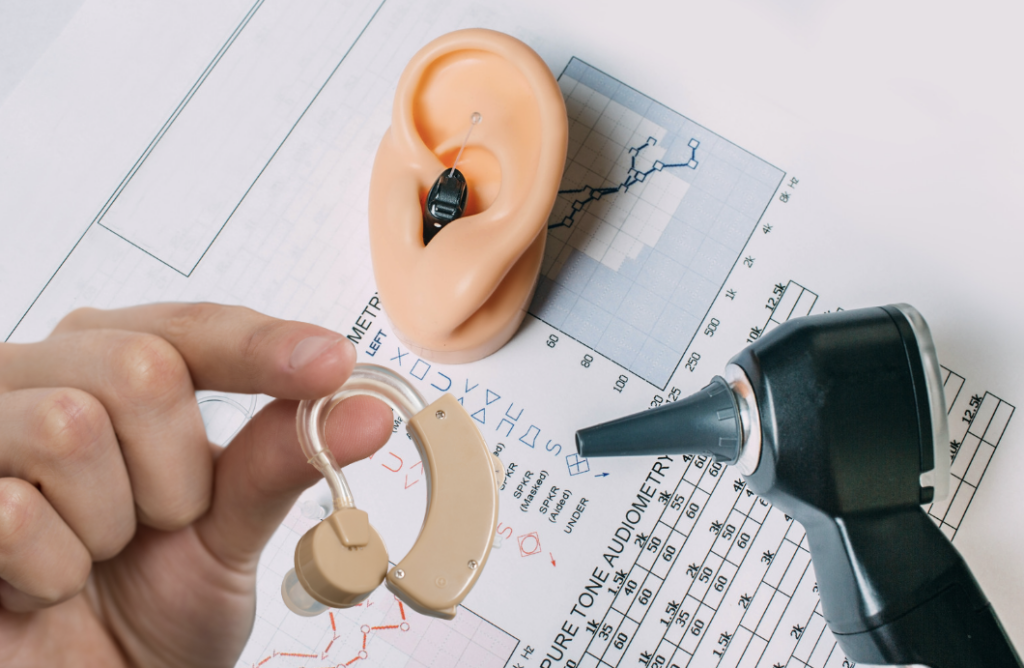Health Conditions
Can Hearing Aids Actually Worsen Tinnitus?
Do hearing aids worsen your tinnitus? It is a common problem for people who have both hearing loss and tinnitus. While some people may have worsening tinnitus after using hearing aids, this is not a universal phenomena. Indeed, hearing aids can help many people with tinnitus. The trick is to locate the correct hearing aid and get professional help.
Understanding Tinnitus and Its Causes
Tinnitus is the perception of sound in the ears or head that does not originate from an external source. It may emerge as ringing, buzzing, hissing, or other similar sounds. Tinnitus can be caused by a number of things, including exposure to loud noises, age-related hearing loss, earwax buildup, certain drugs, and underlying health disorders. Understanding the underlying causes of tinnitus is critical to developing effective remedies.
Tinnitus can be a stressful condition that impairs one’s ability to concentrate, sleep, and enjoy daily activities. The interaction between hearing aids and tinnitus is complicated since they can both relieve and aggravate symptoms. It is critical to know that there is no one-size-fits-all strategy to tinnitus treatment.

The Relationship Between Hearing Aids and Tinnitus
Tinnitus may intensify as a result of hearing aid amplification or an inappropriate fit. Some people may feel that hearing aids amplify external sounds, which worsen their tinnitus, causing annoyance and discomfort. However, it is important to highlight that this is not true for everyone.
Hearing aids can also help by amplifying nearby sounds, which may distract from the tinnitus. Increased audibility of environmental sounds can reduce tinnitus and enhance general hearing ability. Furthermore, some hearing aids include specialist features designed to alleviate tinnitus symptoms.
Common Misconceptions About Hearing Aids and Tinnitus
There are some prevalent misconceptions about the link between hearing aids and tinnitus. One of the most common myths is that hearing aids would worsen tinnitus. While this may be true for some people, it is crucial to remember that everyone’s tinnitus experience is unique.
Another fallacy is that using hearing aids can totally remove tinnitus. Hearing aids can assist control tinnitus symptoms, but they do not cure the underlying illness. It is critical to set reasonable expectations and recognize that tinnitus care requires a diverse strategy.
Research on the Effects of Hearing Aids on Tinnitus
Extensive study has been done to determine the effects of hearing aids on tinnitus. According to studies, hearing aids can improve tinnitus perception, sound tolerance, and general quality of life. However, the results may differ depending on individual factors such as the level of hearing loss, tinnitus characteristics, and personal preferences.
According to some study, wearing hearing aids can cause habituation, in which people become less aware of and troubled by their tinnitus over time. This is due to the brain’s ability to adjust to the presence of tinnitus and the improved audibility given by hearing aids.

Factors to Consider When Choosing Hearing Aids for Tinnitus
When choosing hearing aids for tinnitus control, numerous aspects should be considered. This includes:
- Tinnitus characteristics: The type, pitch, and loudness of your tinnitus can influence the choice of hearing aids and specific features that may be beneficial.
- Hearing loss severity: The degree of hearing loss will determine the amplification needs and suitability of different hearing aid styles.
- Lifestyle and preferences: Consider your daily activities, communication needs, and personal preferences when choosing hearing aids.
- Professional guidance: Seek the expertise of a hearing healthcare professional who can assess your individual needs and recommend suitable options.
Types of Hearing Aids That Can Help Alleviate Tinnitus
Not all hearing aids are created equal when it comes to tinnitus management. Some hearing aids have specific features designed to provide relief from tinnitus symptoms. These features include:
- Sound masking: Hearing aids with built-in sound generators can produce soft, soothing sounds to mask the perception of tinnitus.
- Notch therapy: Certain hearing aids can create customized sound therapy signals that target and reduce the perception of specific tinnitus frequencies.
- Amplification and background noise reduction: By amplifying external sounds and reducing background noise, hearing aids can help shift the focus away from tinnitus.

Tips for Managing Tinnitus with Hearing Aids
In addition to choosing the right hearing aids, there are several strategies that can help manage tinnitus:
- Regular use: Consistently wearing your hearing aids throughout the day can maximize the benefits and help habituation to occur.
- Volume adjustments: Experiment with the volume settings on your hearing aids to find the optimal level that provides relief from tinnitus without discomfort.
- Relaxation techniques: Incorporate relaxation techniques such as deep breathing, meditation, and yoga into your daily routine to reduce stress and promote overall well-being.
- Support groups and counseling: Joining tinnitus support groups or seeking counseling can provide valuable emotional support and coping strategies.
Other Treatment Options for Tinnitus
While hearing aids can be effective for many individuals, they are not the only treatment option for tinnitus. Other approaches that may be beneficial include:
- Cognitive Behavioral Therapy (CBT): CBT can help individuals develop coping mechanisms and change their emotional response to tinnitus.
- Tinnitus Retraining Therapy (TRT): TRT combines sound therapy and counseling to help individuals habituate to the presence of tinnitus.
- Medications: In some cases, medications may be prescribed to manage specific underlying conditions that contribute to tinnitus.
Conclusion
While hearing aids may not be a one-size-fits-all solution for everyone with tinnitus, they can play a significant role in managing my symptoms and improving my overall quality of life. Understanding the complex relationship between hearing aids and tinnitus is essential in making informed decisions.
By seeking professional guidance, considering my individual factors, and exploring the various options available, I can find the right solution for my tinnitus and hearing needs. I understand that everyone’s journey with tinnitus is unique, and with the right support, relief is possible.
Trusted Health, Wellness, and Medical advice for your well-being


